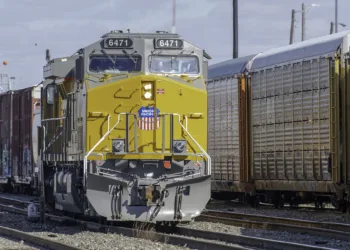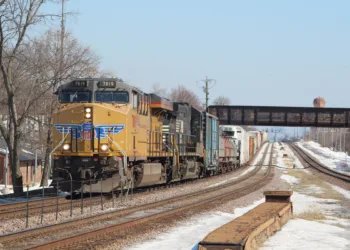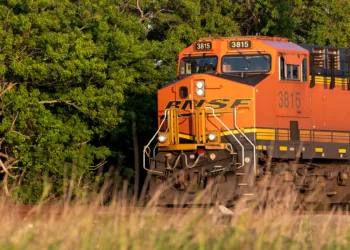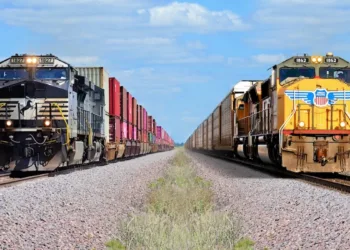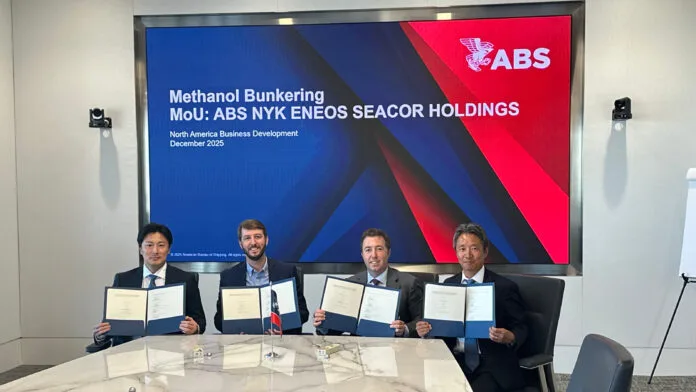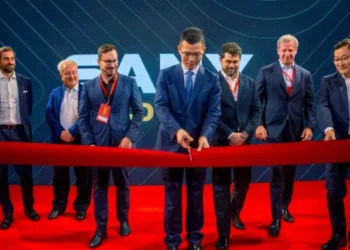
When Doug Waggoner became the CEO of Echo Global Logistics in 2006, the company was a small startup with just 30 employees. Today, Echo is an industry leader, employing nearly 3,000 people and working with over 50,000 carriers.
Echo started its life with venture capital as a true startup, spent several years as a publicly-traded organization, and is now privately owned again and still growing.
Reflecting on the environment in which Echo was founded, Waggoner says there was a transition period between the dot-com boom and the more established model of today. At the time, tech-based 3PLs were a new phenomenon in the freight industry, but they quickly grew to shape an ever-growing market.
“We did it the old-fashioned way,” Waggoner said. “The founders each put in a couple hundred thousand dollars of their own money, and that was it. They brought me in with my industry experience, we built a prototype technology, and then we raised $7 million in venture capital.”
Echo became profitable in 2007, just its second year of operation, surpassing $35 million in revenue.
“We grew the business organically through our service reputation,” Waggoner said. “In 2009, we raised $80 million in our IPO. After paying off some debt, we were left with about $50 million. We eventually started buying small brokers and building scale, and we never had to raise capital again until 2016 when we bought Command.”
Thanks to the unique background of its founders, Echo made impressive strides in a market still in its infancy. The founders had previously specialized in finding capacity and downtime in the industrial printing sector and selling that to end users. When Echo’s founders toured CH Robinson’s Chicago offices, they realized that the logistics industry — which was far larger than printing — presented a similar opportunity for innovation.
Since going private again, Echo reached peak revenue of $4.4 billion in 2022. “Granted, that was a good year for everybody in this space, but we’ve come a long way,” Waggoner said.
Although revenue has dipped due to market softness, Echo’s volume continues to grow, largely due to its strategic balance between spot and contract freight.
“We’ve had to think far ahead in this soft market when it comes to spot and contract freight,” Waggoner said. “If you’re a larger scale broker coming into the soft part of the cycle, there isn’t a lot of spot freight. You have to be intentionally aggressive on contract freight and win lanes ahead of time to carry you through the trough of the cycle.”
For large-scale brokers like Echo, this strategy may be easier to implement, but for smaller brokers it can be exceptionally difficult to swallow the costs of contract freight when prices fluctuate. “Any broker that relies on spot freight will be in a downward spiral in a market where there is none,” Waggoner said. “That’s why so many companies are struggling right now.”
Brokers that are maintaining growth have done so with a careful strategy of responding to RFPs (Requests for Proposal). “Our mix of spot versus contract will flip through the cycle,” Waggoner said. “In the strong part of the cycle when there is more spot freight, we’ll have 60% spot and 40% contract. Right now, that’s flipped the other way, because there simply isn’t enough spot freight to go around.”
“Our ability to navigate the freight cycle comes down to our ability to look around the corner and anticipate what the market is going to do using data and algorithms to predict future pricing,” Waggoner said. “Then we need to have a strategy when RFPs show up so we know exactly how we want to bid and how aggressive we want to be.”
Aggressive contract bids, however, come with inherent risk in the event that prices are locked in at too low of a rate. “To some extent, it happens every time that we’re underwater with our contracts at some point in the freight cycle,” Waggoner said. “You bid rates on the lanes you’re interested in – ostensibly the ones that you’re good at – then you’re locked in, and the shipper expects you to hold true to those rates.”
When the market tightens and the spot rates rise, it’s not uncommon for the spot rates (the price we typically buy at) to rise above the contract rate (that we sell at). In those cases, Echo will be losing money on many contract loads.
According to Waggoner, asset-based carriers put pressure on shippers because they have alternatives. “The carrier might be able to get fifty cents per mile more from the shipper next door,” he said. “There comes a point where they’ll turn down a load to get the slightly higher rate, which of course is a tender rejection.”
“That creates a spot opportunity for someone else in the routing guide,” Waggoner said. “We know the game. If the market looks like it’s getting better, we’re going to get squeezed on our contract freight. We’ll bite the bullet and take the losses on a load-by-load basis where we have to.”
With some shippers, brokers can renegotiate higher prices, but in many cases, shippers will hold brokers and carriers to their contracts. During significant price fluctuations, that can lead to major losses but also opportunities to make inroads with shippers.
“Other players in the routing guide will start rejecting tenders, and that becomes spot freight that we get to bid on at the market price,” Waggoner said. “When that happens, we’ll be losing money on the contracts, but we’ll have good enough margins on spot freight to make up for it. With the addition of the spot, there’s more volume, so that winds up being a healthy time for us.”
As shippers are forced to put more of their freight into the spot market (at a price that’s higher than their contract rates), they become more willing to renegotiate their contracts. “By staying in the hard times, we can make it out ahead in the long run,” Waggoner said.
Shippers will shift their preferences from asset-based carriers to non-asset carriers throughout the cycle depending on what better suits their needs, and Echo is intentional about maintaining good relationships through all of those changes.
“We want to stay in their good graces, and to do that, we have to provide consistently good service and live up to our commitments,” Waggoner said. “Not to say that we never reject tenders, but it’s on a case-by-case basis and we are very careful how we tread those lines.”
One of Echo’s most important internal metrics is what they call negative loads, where the revenue is less than the cost of operating the truck.
“In a normal market, gross profit on a load with a long length of haul could be a few hundred dollars, but there is always a percentage of shipments where the number is negative,” Waggoner said. “In a tight market, we’ve gotten as high as 19% negative loads.”
Echo honors commitments to shippers, but Waggoner says they have to compensate for those losses with spot freight and capitalize on higher spot pricing.
“We obviously prefer the spot freight when that’s available, because you can charge the market price,” Waggoner said. “To get an opportunity for that spot freight, though, you have to first be in the routing guide as an approved carrier, and also be in good standing with the respective shippers.”
Many shippers maintain a scorecard for pickup time, delivery time, tender rejection rate and other metrics, so Echo works hard to keep good scores and ensure good service.
“We do our part to be in the right place to make big margins at the ideal times in the spot market,” Waggoner said. “Good service is the key to our growth, even when the market looks difficult.”
Click here to learn more about Echo.
The post Honoring contracts puts brokers in position to take advantage of the spot market appeared first on FreightWaves.



